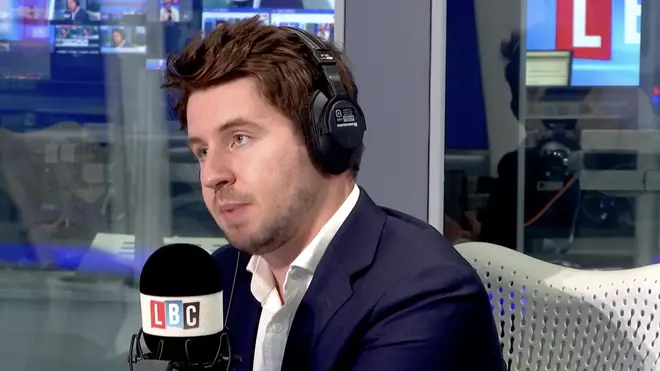
Matthew Wright 7am - 10am
25 November 2020, 18:20 | Updated: 25 November 2020, 19:24

When Rishi Sunak became Chancellor just nine months ago, coronavirus had killed fewer than 1,500 people across the world and was still largely contained to China.
Boris Johnson had, just two months earlier, secured a Commons majority of 80 and, after a Christmas break in the Caribbean, was gearing up to put his plan for government into action.
Sunak’s first task, then, was to rapidly draw up a Budget for implementing the Prime Minister’s “levelling up” agenda. But within weeks, the world had been turned on its head.
The Budget was delayed due to the rapidly spreading coronavirus and, as the contagion quickly crossed the globe, everything changed.
Since then, the Chancellor has been forced to take actions that neither he nor any of his predecessors could ever have imagined taking: paying the wages of millions of UK workers in jobs that might otherwise not exist, bribing the British public to go out for dinner, ensuring theatres and sports clubs did not go bankrupt in their droves, and ramping up borrowing by hundreds of billions of pounds to pay for it all.
And it is far from over. Sunak used today’s Spending Review, to use a phrase he has often repeated, “go further still”.
After Boris Johnson confirmed this week that restrictions will likely need to stay in place until at least the end of March, government support was needed to help struggling businesses and employees for at least the next four months.
Sunak’s latest round of spending was, in part, directed at controlling the virus over the winter months – hardly a cheap task.
Just this week it was quietly revealed that the budget for NHS Test and Trace is to be increased to £22bn a year – almost a fifth of the entire NHS budget. The Chancellor will need to ensure that the health service and other frontline agencies have the funding and support they need to keep the virus under control until the impact of a vaccine can be felt.
Then there are the longer-term economic issues: growth, productivity, employment. It is the latter that most concerns those in government, hence the new £3bn fund to help people who have been unemployed for some time to find work.
With the Office for Budget Responsibility forecasting unemployment levels of 7.5% by the middle of next year – the equivalent of 2.6 million people – more government intervention will be needed in the coming months.
Sunak has always been clear that, however effective the furlough and other similar schemes, he cannot save every job, and so the Treasury’s focus is slowly turning to job creation, training and apprenticeships.
Despite all of the above difficulties – and indeed, partly because of them - Boris Johnson and his team are also desperate to show that the Prime Minister’s “levelling up” agenda is undimmed by the shadow cast by the pandemic.
That is why Sunak announced that he is ploughing £4bn into a new “Levelling Up Fund” that local authorities will be able to ask for help in paying for transport infrastructure, urban regeneration and new cultural facilities.
There is one thing that was noticeably missing from the Chancellor’s speech, and that is how all of this is likely to be paid for.
While Treasury officials are already working up possible ways of raising taxes and cutting spending in the coming years to pay off the UK’s burgeoning debt, it is far too early in the process for any real sense of what this might look like.
Still, we had a couple of hints during today’s statement in the form of a pay freeze for many public sector workers and a reduction in the UK overseas aid spending from 0.7% of GDP to 0.5%. Both announcements are controversial but are nothing compared to what is coming down the line.
Today we learnt that government borrowing this year alone is forecast to be £394bn – the highest level in the UK’s peacetime history - and that debt will continue to soar in the coming years.
The huge spending bill that has been wracked up during the Covid crisis will need to be paid off somehow – a process that will involve many difficult decisions in the months to come.
Another interesting question doing the rounds in Westminster is what this all means for Labour. It is difficult to be the traditional party of big spending when your opponents are splashing the cash like there is no tomorrow.
Anneliese Dodds, the Shadow Chancellor, focused her criticism on specifics like the public sector pay freeze, but Dodds and Keir Starmer will have some big strategic decisions to make in the coming months.
Will, over time, they become deficit hawks and attack the Tories from the right for not cutting debt quickly enough? Or will they urge the Tories to use the recovery to go even further in reshaping society?
Only time will tell – but it’s a row that is going to shape British politics for years to come.